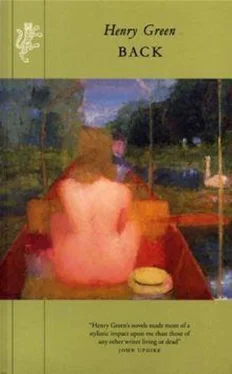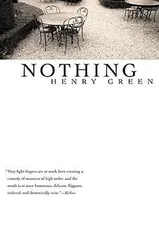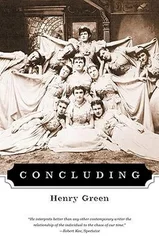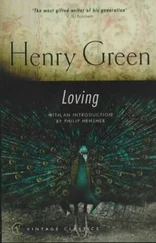“That’s plenty now,” James objected.
“Well it’s right, isn’t it?” Charley Summers asked.
“You’re not yourself, Charley, old man,” Mr Phillips said. “And I’m thinking there’s the little lady we should apologise to,” he added. “My dear, this is the war. Everything’s been a long time. Why only the other day in my paper I read where a doctor man gave as his opinion that we were none of us normal. There you are.”
“I’m not your dear,” she answered. “And I’m not his lost one, as he seemed to imagine the last time.” She showed, by her look at Charley, who it was she had in mind. This direct reference to Rose, and to Charley’s possible relations with her, was too much for James. Yet he still remained polite.
“Well I’ve got to get back now. I’ve someone waiting for me,” he said. He closed the door gently behind him. And his last words made Miss Whitmore pity herself the more. She began to cry again, this time quietly, and with zest.
Charley felt ten years older, cynical as never before.
“What filth,” he repeated, as though from a great height.
She cried on.
“The end of my life,” Charley said, thinking aloud. “That’s what it is. I’m finished,” dramatising it.
Still she cried.
“Well, I’m off, Rose,” he said. “You’ll not see me again, now.”
He got up to make his way out.
“No, don’t go,” she said.
He waited. She blew her nose vigorously.
“I’ll have this out with you, if it’s the last thing I do,” she began. Apparently she had got over her rage with him.
“What can you say?” he asked, helpless.
“It was what Mr Phillips told me about your having been out there as well,” she began. “Maybe I’ve misjudged you. Were you blown up or what?”
“I was not.”
“All right, a girl can only ask, can’t she? And when she finds a man making a fool of himself, perhaps ruining his whole life, it’s only natural if she wants to put him wise, even when that man is a cracked stick like you. After what you’ve done to me I’d be justified in just showing you the door, now wouldn’t I?”
“What have I done?” Charley asked, injured. He would not look at her, and wore an absurd expression of dignity.
“Bringing Mr Phillips like you did. How d’you suppose it makes a girl feel?”
“Up to some low game, the two of you,” Charley muttered, beginning to get frantic.
“Being the man you are, I didn’t suppose you’d get it. Why, you’re so proud you can’t see out of your own eyes. If it wasn’t for that thought, I doubt if I’d be sitting here trying to get the truth. No, it was a dirty wrong to bring that individual to me, to be reminded of his own son’s mother. It was vile.”
She spoke with dignity, while he thought of her as a dirty double crosser. Actually she was intensely proud of the terrible likeness to her late half sister, and had been ever since she first learned of it. Then he had another idea which flooded all over him, he was so sure it was right.
“You’re in this together,” he shouted.
She burst into tears again. “All right, I’ve tried, haven’t I?” she brought out between sobs and hiccups. “They ought to lock you up. Yes, well then, go now as you said, and I never want to see you more.”
He went. It was not until the room was empty of him that she remembered to be afraid. For she saw he must be a shell shock case, and dangerous.
The whole thing had been so unpleasant for James that he decided to put it out of mind. But the evening he got back from London he picked up one of the literary reviews his wife had liked, and to which he had kept up the subscriptions after marriage while hardly ever reading. And he came on a translation which seemed so close to Charley’s situation that he thought he would forward it, even though he was sore at the man. Accordingly he wrote on the cover “Read, mark, learn, and inwardly digest,” signed his initials, drew attention to the story with a cross, and sent the thing to Summers, whom he forgave the moment he had posted the packet.
Meantime Charley had gone sick. He told the office he had ’flu. He kept to his bed. What he thought of himself was, that he was going to lose his reason.
When Mary carried up the thick envelope, he recognized this review as one that used to lie about in the old days, missed what James had written, ignored the date, which was recent, and, uninterestedly, turned over the pages until he came to the cross with which James had marked the place. His heart gave a twist. Just for a moment he thought it must be an old kiss from Rose. Then he asked himself why it could have been sent. Finally he was not even going to look through the thing, he felt too ill, when his eye caught a bit about a girl fainting. So he turned back to the beginning, and went into it, as it is printed here:
“From the Souvenirs of Madame DE CREQUY (1710–1800) to her infant grandson Tancrède Raoul de Créquy, Prince de Montlaur.
“I must tell you about Sophie Septimanie de Richelieu who was the only daughter of Marshal de Richelieu and the Princess Elizabeth of Lorraine. She was far more sensible of the honour that was hers from her mother’s side of the family than she was of her father’s ancestors. Indeed she did not always bother to hide this from her father, for which he occasionally gave her a rap over the knuckles.
“Septimanie was indefinably gracious. You could say she held a mirror to all that was the France of old days. She was a mixture of wit, of manners, with a sense of tradition, yet always absolutely herself. She had exquisite ways. She had a kind of full dress elegance but underneath there was all the time a hint of the dreadful death in store for her so soon. She was tall and lithe; she had brown black or grey eyes according to the mood she was in. There have never been eyes like hers to show changes of mood more brilliantly or, for anyone lucky enough to be under their spell, to make a gift of such a magical effect.
“My grandmother thought to marry her to the son of Marshal de Bellisle, the Count de Gisors. This young man was in his day what you are going to be we hope, the best looking, the finest, and the most lovable of them all. But Septimanie’s father did not think a great deal of the family. ‘Really,’ he said to my grandmother with malice, and this is to show you what sort of a man he was, ‘the two young people can always meet after Septimanie has a husband.’ And so it was that, against her will, Septimanie became Madame d’Egmont.
“Her husband Casimir-August d’Egmont Pignatelli was the most reverential, silent, and most boring of men.
“Thus it came about that Mademoiselle de Richelieu, my very dear friend, became Countess d’Egmont, with all that this means, and that is, as we have the simplicity and good taste to say nowadays, that she had married into a family which was one of the best connected in Europe. In other words she was a Princess de Cleves and of the Empire, Duchess de Gueldres, de Julliers, d’Agrigente, as well as a Grandee of Spain by the creation of Charles V, and therefore on the same footing as the Duchesses of Alba and Medina-Coeli, who are of course the first ladies in Europe. I could run on for four pages more with the titles belonging to the great and mighty house of d’Egmont, which is descended in a direct line from the Reigning Dukes de Gueldres, and which the great aristocracy in all countries has had the mortification to see die out for want of an heir. And afterwards it was always said that this was Mademoiselle de Richelieu’s fault.
“However Madame d’Egmont got on quite well with her husband. No more than that. And, in the meantime, a marriage was arranged between a Mademoiselle de Nivernais and Monsieur de Gisors. But the young man was killed a few months after the ceremony.
Читать дальше












